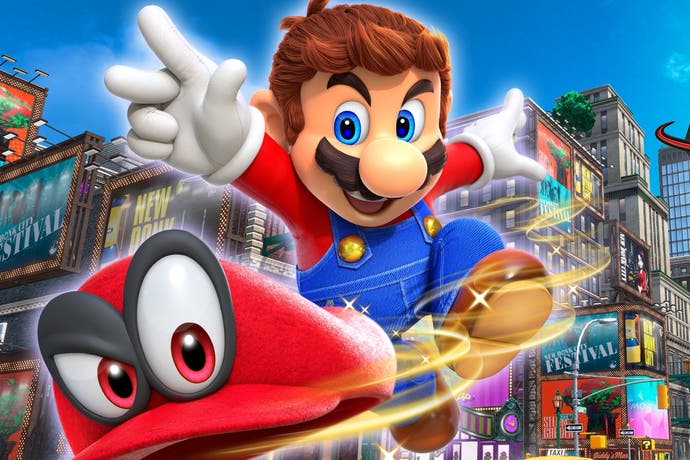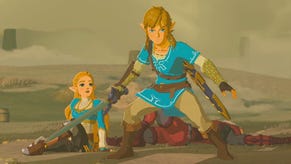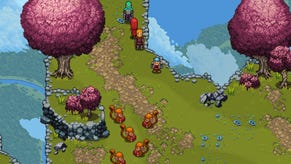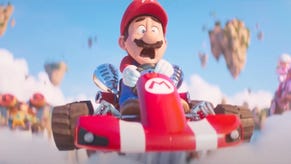Speedrunning Mario has transformed the way I play games
A link to the path?
We all know about Usain Bolt and his ludicrous speed over 100 metres. He currently holds the record with 9.58 seconds. Paula Radcliffe set the fastest women's marathon at 2 hours, 15 minutes and 25 seconds. In sports, world records mean acclaim and the chance to be recognised as the best in the business. But human obsession over world records isn't limited to the track or the sportsfield. Tony Glover is a name you won't likely be aware of unless you're into horticultural endeavours; he holds the record for growing the world's heaviest onion at 8.5kg. You maybe haven't heard of Silvio Sabba, an Italian man who aims to hold as many records as possible. He currently has around 70 titles to his name, including most clothes pegs attached to his face in one minute (51), most AA batteries held in one hand (48) and most CDs balanced on one finger (255).
Video games are no stranger to the setting and breaking of records - there's even a yearly book dedicated to the achievements of the industry. And there's one facet of games that shines particularly brightly here - speedrunning. Eurogamer reports on speedrunning fairly regularly, and it's not hard to see why. A speedrunner attempts to finish a video game in the fastest time possible. Events are held across the world for marathon sessions, usually raising money for charity. Twitch and YouTube are abuzz with new and old runners trying ludicrous things, and every few weeks you hear of someone who battled through Dark Souls in record time using a Guitar Hero controller, or someone who played through Zelda blindfolded. So what's it like when the pad is in your hand and the clock is ticking? What's the true appeal of speedrunning, and how does it change the way you see games?
Speedrunning didn't fully capture my attention until I ventured onto YouTube a few years back to look for tips for Spelunky. I wanted guidance regarding how to reach the Hell level, and I needed to see what an 'Eggplant run' was. As with explorations on YouTube, I immediately fell down a rabbit hole; hours later I was still sat, cross-legged, childlike, watching as someone wrapped up an entire Spelunky run in a matter of minutes. Next, Games Done Quick rolled around and a guy called Kinnijup was scheduled to run Spelunky. I wasn't just impressed with his skills, I was stunned - he could finish the game in under five minutes, without collecting any gold! I followed him on Twitch and listened out for names of other runners; within two weeks I was watching everything I could.
'Speedrun' became part of my gaming lexicon. I couldn't stop watching videos, reading guides and talking to friends about what was happening in the scene. My new obsession made me a collector of sorts; I followed MitchFlowerPower, GrandPooBear, BubblesDelFuego, Edobean, Darbian and others on Twitch. My bookmarks folder slowly filled with videos that I wanted to either watch again or show to others. And then I decided I wanted to be a part of it all.
The Nintendo mascot is the perfect gateway into this obsession with speed. Most people have held a controller and guided Mario - or Luigi, if you were the younger sibling - around the Mushroom Kingdom. We know his movesets from the 8-bit days up to the Switch, but in the hands of the best in the world, the plumber becomes a dynamo. Mario's the ideal place to start with this hobby because those classic levels are ingrained in our memories, which means when a runner rips apart the basics, it's all the more beautiful to watch.
So, I set out on my journey to become a speedrunner. Of course, I picked the original Super Mario Bros, because my muscles already had the memory of holding down the 'go fast' button and hitting jump when needed. I dusted off my NES, found the Mario/Duck Hunt cartridge and booted it up - after giving it a quick blow, obviously. I already knew where the warp pipes were from childhood days, so I was going to run a category called Any%, which means I wanted to complete the game as fast as I could using any and all shortcuts.
My first finishing time was an abysmal 20 minutes. I knew that practice and research was the key to cutting that figure back. I watched Darbian constantly - his record currently sits at 4 minutes, 56 seconds and 528ms - and tried to keep his movements in mind.
I died a lot. I could see where I needed to jump, where I needed to have faith that I'd catch enough air to hop over a flower as it chomped from a pipe. I began memorizing enemy patterns, seeing where flying Koopas landed so I could slide under them. My time slowly started to drop and soon I could finish the game in 16 minutes.
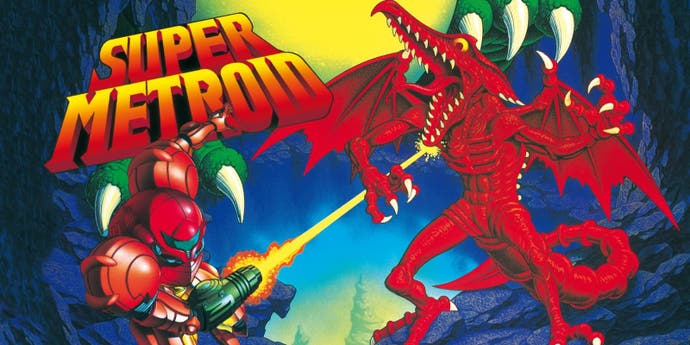
Back to the videos. I saw that if I jumped off of a block closer to the edge of the pixels I could hit the beanstalk brick in a specific area without pausing. Yes, I had the muscle memory for the button presses, but now I had to shake the old mindset of preferred routes through the game. I had to have confidence in the new, risky moves I was starting to spot.
My time hit 14 minutes, then 12. I really wanted to crack ten minutes. I was becoming hooked on the adrenaline that followed a good run, and even though I'd never trouble the best in the world, video games were still giving me something new and exciting.
And that's the point, really. Speedrunning gives fresh life to games that goes far beyond what the developer originally intended. Just take Mario Odyssey. Runners have battled over milliseconds through every iteration of Mario, so everyone had their eye on Odyssey from the start. Within a week of its release, the speedrunning websites were flooded with runners old and new. Battles were breaking out between people vying for the top spot, and that top spot changed hands every day. Sometimes it changed hands multiple times a day. I couldn't look away.
In other words, although speedrunning is, at its heart, all about competition and bravado, the most appealing aspect of it is actually the community. Runners want nothing more than for more people to try running their favourite games (or even the not so great games - there's a huge number of people focusing on titles that would have been considered failures). And everyone shares new routes, tips and tricks.
Over time, speedrunning has started to feel like performance art. I've started to look at each speedrunner as an artist who creates unique and exciting moments in their medium. And, like all art, it comes in various forms and styles. Some in the community focus purely on speed and nothing else. Others create meme runs that stand out from the crowd - playing with those guitar controllers, finishing a game without being hit or without collecting coins. They take a surreal look at a video game convention and subvert it - while still going fast, of course.
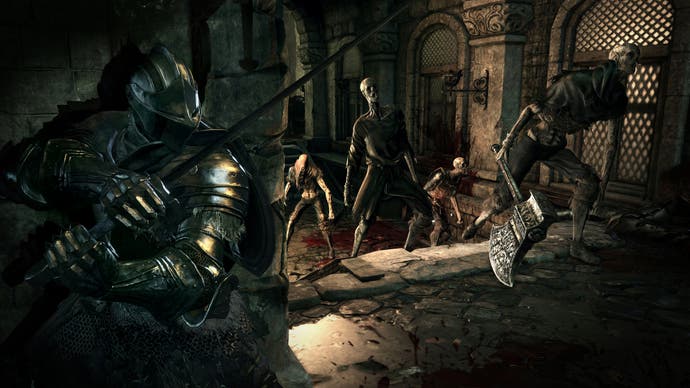
And for me? It's been transformative. I probably die more than ever in video games now. I die because I'm pushing myself to reach that ledge earlier than I should, or I'm running full tilt in the hope that I can beat the clock that now sits in my head. I have the mentality of a racing driver who analyses tracks looking for the straightest line from point A to point B. I'm not racing against anything but myself, but that's what most speedrunners do, like athletes, until they reach greatness in the form of a world record.
I doubt I'll ever break a record, but it won't stop me from running. I've reached a point where the times matter, but what matters more is how I feel. Speedrunning gives me a new lease of life in games and, alongside that, a wealth of new things to enjoy and new people to talk with in Twitch chat, Reddit threads and Discord servers. The communities have adjusted something in me. Gaming was once very solitary, but now I feel a part of something.
And it can even bleed through into the real world. If I cut through the grassy patch that leads into the park, rather than walking down the concrete walkway, how many seconds will I save on my walk into town? If I jump over the small, low brick wall, instead of following the linear path, can I reach my goal a little faster? I may only earn back a handful of seconds and I'm no kind of Parkour athlete, but I can see the routes now. I can see where time can be saved.
In life I look for shortcuts to goals, even if I don't take them. And in games? In games, I'm reckless and play with a gleeful abandon in the hope that I'm fast and, more importantly, that the end result looks good.
